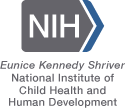The Triangle Project
Over the past 20 years, volunteers with the Church of Jesus Christ of Latter-day Saints and genealogical societies in England have entered 100% of the 1880 U.S., 1881 England, Wales & Scotland, and 1881 Canadian censuses into database form. For the purposes of both genealogical and historical research, these databases are now without question our most valuable sources on ordinary Britons, Canadians and Americans in the late nineteenth century. In separate arrangements in the U.S. and Canada, the Latter-day Saints have agreed to provide the Minnesota Historical Census Projects, the Institute of Canadian Studies, and North American researchers in general a copy of the U.S. and Canadian databases for scholarly research in return for our assistance in checking and cleaning these databases. Work to refine a 100% version of the 1881 census of England and Wales is underway at the Dept. of History, University of Essex, in an independent but related project.
Given the considerable overlap in the historical and electronic nature of our microdata and in light of the tremendous opportunities for trans-Atlantic research posed by these census data, the England, U.S. and Canadian project members have decided to join forces. On June 10-12, 2000, the Minnesota Historical Census Projects hosted a workshop in Minneapolis, Minnesota, bringing together participants from Minnesota, the Dept. of History, University of Essex, the Canadian Families Project, and the Institute of Canadian Studies, University of Ottawa.
Discussions at the Minnesota workshop encompassed each project's experiences in processing these microdata, current funding situations, plans to obtain further funding, the compatibility of the three national microdata sets, variable coding, data dissemination and plans for greater trans-national collaboration in microdata preparation, integration, dissemination and research. This was a hands-on workshop, in which research assistants with the MHCP demonstrated their own data checking and cleaning procedures, and a participant from England demonstrated more efficient data classification procedures using the Canadian microdata on a laptop.
Workshop participants met again at the Social Science History Association conference in Pittsburgh, October 26-29, 2000, as well as at the Canadian Families Project April, 2001, conference in Toronto.
Scandinavian sources
The Norwegian and Icelandic cases are somewhat different. Over the past two decades, Norwegian researchers have invested more than half a million hours in digitizing historical population records. The national censuses of 1865 and 1900 are now complete, and the census of 1875 is well underway. Although the primary use of these materials to date has been for genealogical purposes, they were envisioned from the beginning as a source for social science research. The database is a collaborative product of the Norwegian Historical Data Centre (Tromsø) and the Digital Archive of the Norwegian National Censuses (Bergen). In Iceland, the censuses of 1860, 1870 and 1901 have been transcribed as part of an effort to construct genealogies for genetic research, and work is underway on the censuses of 1880 and 1890.



